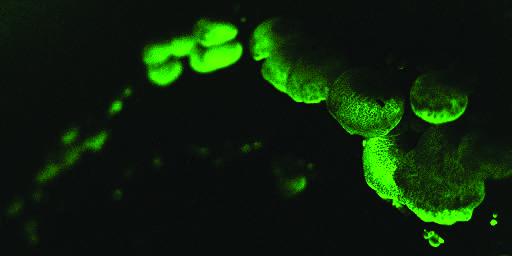
Q&A: How Does Caffeine Affect Your Internal Clock?
A double espresso shot delays the human circadian clock by an average of 40 minutes. How does
the most widely used psychoactive drug — caffeine — affect our internal timekeeping?

A double espresso shot delays the human circadian clock by an average of 40 minutes. How does
the most widely used psychoactive drug — caffeine — affect our internal timekeeping?

Although humans never evolved the necessary mechanisms to glow themselves, some bioluminescent species can in fact emit their own light. The trick? A specific type chemical reaction, which happens to have many practical applications.

Do we eat with our ears? Perhaps. Recent research from Oxford University explores how sounds impact our perception and enjoyment of flavor.
Movies have the ability to synchronize activity in viewers’ brains, especially when the film contains many cinematic effects.
The new soccer ball by Adidas made a splash at this year’s World Cup in Brazil. Its sleek, 6-paneled design and specially-crafted surface give it predictable aerodynamic movement that was widely praised by the players.
Shuji Nakamura, Isamu Akasaki, and Hiroshi Amano won the 2014 Nobel Prize in physics for their invention of blue LED. What makes this invention note-worthy?
Recent studies have shown that concussions are correlated with depression, but more work needs to be done to probe for causation.
Genetics may be the cause of curly hair, but researchers at MIT have just recently explored the physics behind why exactly curly hair acts the way it does.
Scientists and non-scientists alike are impressed by 3D printing, especially by how rapidly use of the cutting-edge technology has expanded in recent years. But how exactly do 3D printers work?
Identical twins share exactly the same genome, and are usually raised under the same conditions during the early parts of their lives. Thus, it is
All stars die, but not all stars “explode.” A supernova is a violent explosion that marks the end of a star’s life cycle. But our
Contrary to popular belief, eye contact may do more harm than good when trying to persuade others to change their views. A new study in Psychological Science elucidates how people actually react to eye contact.